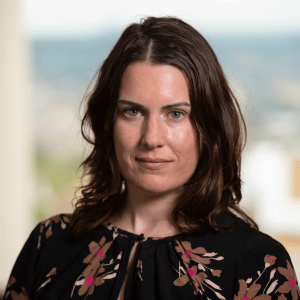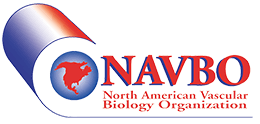
Cynthia St. Hilaire, PhD, FAHA
Associate Professor of Medicine, Tenured
Faculty Scholar, Vascular Medicine Institute
Secondary Appointments in the Departments of Cardiothoracic Surgery and Bioengineering
University of Pittsburgh
Department of Medicine, Division of Cardiology
Pittsburgh Heart, Lung, and Vascular Medicine Institute
Research Interests:
Vascular and valvular calcification, epigenetic regulation and phenotypic transitions of cardiovascular cells, rare vascular diseases as models for common disease pathology, translational therapeutics in vascular calcification, tissue biobanking and patient-derived cell models
NAVBO Activities:
Member since 2011; Councilor – 2019-2022; Online Programming Committee, Co-Chair, 2021-2024; Speaker - Vascular Biology - 2017, 2021, upcoming 2025, and Session Co-Chair 2015; Presenter - NAVBO Workshops at Vascular Biology – 2011, 2012, 2019; NAVBO Education Committee Seminar Series – 2023; Invited Panelist, Overcoming Systemic Barriers of Science: Academic Journeys and Unique Challenges Faced by Underrepresented Groups – 2023; Poster Judge – 2019 to present; Outstanding Poster Award Recipient - 2011 NAVBO Vascular Matrix Biology and Bioengineering Workshop
Related Experience:
Associate Editor, Circulation Research; Editorial Board, Arteriosclerosis, Thrombosis, and Vascular Biology (ATVB) and Journal of the American Heart Association (JAHA); Host, Discover CircRes, Podcast associated with Circulation Research; Former member and Chair, ATVB Early Career Committee; Former Member, ATVB Women’s Leadership Committee; Member, ATVB Communications Committee; Member and First Chair, International Society of Applied Cardiovascular Biology (ISACB) Women’s Leadership Committee; Co-Chair, University of Pittsburgh Department of Medicine Research Day, 2023 - present; Co-Director, University of Pittsburgh Scientist Well-being Initiative, 2024 - present
Vision for NAVBO:
I am deeply honored to be nominated for President-Elect of NAVBO. When I was a postdoctoral fellow in 2010, I attended IVBM with a poster in hand and a hopeful list of faculty I dreamed of meeting. On the first day, I quite literally bumped into Dr. Linda Demer and blurted out, “Oh, you’re Linda Demer! Will you please come to my poster tonight?” Embarrassed but determined, I was stunned and grateful when she not only came but brought with her several other leaders in the field. For over 20 minutes, the cardiovascular calcification brain trust stood at my poster, engaging in scientific discussion and introducing me to others as they passed by. I left that meeting feeling like I had found my scientific home—where I belonged and where I was valued.
As a first-generation college and PhD student, I had often felt like I was navigating an invisible rulebook, always a step behind. But that experience showed me that science doesn’t have to be intimidating, competitive, or exclusive. It can—and should—be welcoming, collaborative, and empowering. As President of NAVBO, I would strive to ensure our society continues to foster this spirit of inclusive and open scientific dialogue, where all members—regardless of background or career stage—feel seen, supported, and inspired to grow.
The COVID-19 pandemic brought many truths to the forefront—a renewed appreciation for community and essential workers, the power of global scientific collaboration and data sharing, and the benefits of flexible work structures that support work-life integration. It also underscored a serious gap: as scientists, we have not consistently communicated the value and relevance of our work to the broader public. We must do better at translating the significance of our research—work that may shape tomorrow’s therapies—into messages that resonate beyond academic circles.
If elected, I would champion a new outreach initiative focused on distilling the complex scientific questions we explore into accessible, relatable concepts for non-scientists. We must play an active role in educating our communities about the importance of using a variety of model organisms for understanding vascular development, and about the value of the scientific method and rigorous experimental design. We are at a pivotal moment, where misinformation is pervasive and the public often cannot discern between a search engine result and peer-reviewed scientific evidence. As AI tools become increasingly integrated into our lives, the need for accurate, thoughtful communication of scientific findings—along with their limitations and uncertainties—is more urgent than ever.
NAVBO members are at the forefront of discovery in vascular biology and cardiovascular disease, and we are well-positioned to lead by example. By actively engaging with our communities, we can elevate public understanding of the scientific process, foster trust, and demonstrate the immense societal and economic value of biomedical research. It would be a true privilege to lead NAVBO during this transformative time—to support and mentor our next generation of scientists, to advocate for the translation of discovery to impact, and to sustain our society’s legacy of excellence, collaboration, and innovation in vascular biology.
